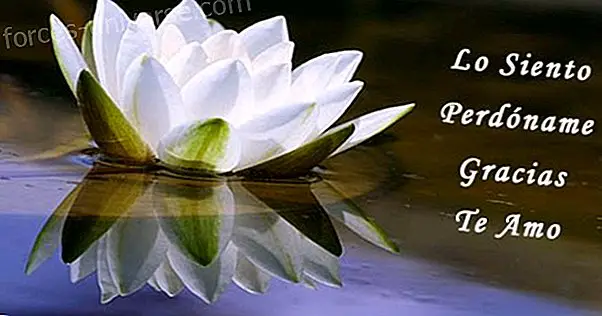The anger
We get angry when something frustrates us
Is our anger destructive or decisive?
Under each anger there is a frustration, and the frustrated desire becomes anger. The essential function of anger is to give us more energy to face the obstacle that frustrates. The fundamental issue is to properly channel that force. That learning is one of the most significant tasks that human beings need to perform . The idea that getting angry is a bad thing comes when we don't know how to channel the energy of anger. Sometimes the consequences of the anger caused by the causes that caused it are more painful, due to the inadequate use of that energy.

Anger can be channeled in two directions .
- I use my anger to punish and suffer for frustration (based on a negative belief). By reacting in this way, the other feels hurt responding with another grievance. The intensity grows with both being hurt and resentful. No one wants to know more with the other, anger that destroys what started this discussion?
- Anger that resolves is when I direct that extra energy over the obstacle that frustrates me . By concentrating the energy in a proper direction, anger fulfills its essential purpose, it gives energy to solve an obstacle that frustrates. This anger is based on two pillars:
- express what I feel about what happened and demand a response that would "displease".
- Express frustration that produces the situation, necessary to vent and what happens to me and what happens to the other, engine that helps change. When I express what annoys a person (for example, unpunctuality-neglect, etc.), that helps to be taken into account, preparing to be more punctual or attentive to what was agreed.
Expressing what I feel is not to prosecute the other , but with two different answers, it is necessary to learn to distinguish clearly.
- One thing is to say: I am angry at what you did! Y
- a different one is: You are destructive etc.
The essence of the anger that resolves is to self-affirm with clarity-force and respect, for that it is necessary that I focus on the action that frustrates me to demand a solution. Say what I feel:
- Orient the demand to the future.
- Generate an agreement so that it does not happen again.
The key is to discover in each situation, that I would get mad. What would have to happen here for my anger to stop?
That question focuses the mind on the central point of the question, how do you solve the problem that angers me?
Many people believe that if I have affection for a person, I cannot be angry with them, that I have to let everything go because it is affection or anger, it is really the opposite.
One of the things that most helps to resolve anger is to express anger with affection .
It may seem like a contradiction but it is simply to remember that the person with whom I am angry is someone to whom I have affection. It goes from: "Because I have affection I can not get angry" to "because I feel that I have affection is that I can express my anger when I feel it".
When one learns to get angry respectfully, one clearly knows what the other's anger is like:
- if it is resolutive or destructive (or how much of each) ?.
- You can tell what part of truth there may be in that anger and what repair it requires
- how much of prosecution, tort or abuse (part of immaturity, ignorance of those who get angry like this).
- When I establish that distinction, I am better able not to be subjected to the destructive mode of anger of the other.
What is the cause of explosive anger and disproportionate to the situation? the accumulation of anger.
When one did not learn to express anger tends to retain it and accumulates, some minor situation activates the accumulated anger and leaves with disproportionate intensity that baffles the other, and oneself. It is good to be up to date with anger, for that it is necessary to learn to express them in a decisive way. If not one tends to shut up for fear of complicating things.
Counselor Alejandra Alonso
The Sense of Duality:
Divine conflict, internal fragmentation.
It interacts with something that is believed alien to the self, but that must be integrated into the heart if fullness is desired.
The experimentation of the no-me is fundamental in the evolution of the human mind, and presides over the process of interaction between form and that beyond form, a great binding agent that brings both dimensions into contact (dynamics of the yo-no-yo and unifying love)
In order to know a non-self, it is necessary to perceive a type of reality external to one's current consciousness, awareness towards a certain quality, which is perceived as alien to the self. Energy of love and peace resulting from and consequent overcoming conflicts. Everything that is captured as alien to the self is incorporated into consciousness, included within the internal sense, and in that process lies the key to the unification of the qualities that underlie everything manifested. Duality is the absence of conscious unity (from the moment we name the conscience we speak of love). The duality ceases to agitate us:
- when we open our heart to form
- when we understand that everything in the universe has a meaning and we are incomplete until we consciously integrate into it.
Our presence is more vivid when we can understand (by the mind and the heart), every aspect of life with which we interact, as a sense in itself, (part of the great meditation that is the Divine Plan, which deserves deep respect in all its manifestations).
The state of consciousness that depletes duality produces an encounter beyond the pairs of opposites. To say relationship is to say time (karma matrix, set of imperfect energies that have to be synthesized in the consciousness of being to reach liberation in the physical, emotional and mental planes). Love is the great liberator of karma, because duality can exist ( when the origin and sense of duality is understood, synthesis is achieved). Thus in the fullness there is no space for any time (nor karma that affects us). However, the lack of compassion and respect leads to despise qualities that surround us:
- the mind is fragmented looking for distant paths,
- more interesting talks, deeper people, etc.,
- distracting the Thinker and moving him away from the here and now, which is where the answers to all the questions are.
The search for the meaning of each process, each Situation, Act, Word, Emotion, Thought that surrounds us, implies a deep understanding of the importance they have because it is what karma has given us in the present; Such is duality and its great opportunity. If on the contrary we remain with the mind and heart blind to the meanings, the interaction will not deepen, due to our lack of compassion, and we will suffer repeatedly because of our superficiality, which will become So in a generator of inharmonies.
Each triumph of understanding over form represents an important influence on the spiritual life.
Counselor Alejandra Alonso
Copyright 2009 All rights reserved to
Transpersonal Counseling Generation.
Reg. Number 2299158
Reg. Number 2299158






